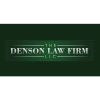- understanding-white-collar-crime
- initial-investigation-and-case-assessment
- developing-defense-strategies
- navigating-legal-complexities-and-regulations
- the-role-of-expert-witnesses-and-evidence
- client-communication-and-trial-preparation
- why-choose-fred-miller-lawyer-for-white-collar-defense
1. Understanding White-Collar Crime
White-collar crime encompasses a wide range of financially motivated, non-violent offenses typically committed by business professionals. These crimes include fraud, embezzlement, insider trading, money laundering, and bribery. Understanding the nature of white-collar crime is essential for an effective defense approach because these cases often involve complex financial data, intricate regulations, and sophisticated investigation techniques.
Criminal defense lawyers must familiarize themselves thoroughly with the specific allegations and relevant laws to build a strong foundation for defense. Recognizing the nuances of white-collar crime cases is the first step in crafting a strategic response that addresses both legal and factual issues.
2. Initial Investigation and Case Assessment
Once retained, criminal defense lawyers begin with a meticulous investigation to understand the full scope of charges and evidence. This involves reviewing indictments, financial records, communication logs, and any government or regulatory agency reports. Lawyers also evaluate the strengths and weaknesses of the prosecution’s case to identify vulnerabilities and potential defenses.
At this stage, experienced attorneys often consult forensic accountants or financial experts to interpret complex documents and detect inaccuracies or inconsistencies. The initial case assessment helps set realistic expectations and informs the overall defense strategy.
3. Developing Defense Strategies
Defense strategies for white-collar crime vary based on case specifics but often include challenging the sufficiency and legality of evidence, questioning the intent element critical to many white-collar offenses, and negotiating plea agreements when appropriate.
Some defenses focus on demonstrating lack of criminal intent, proving compliance with relevant laws, or highlighting procedural errors during investigations. Lawyers may also pursue motions to suppress evidence obtained unlawfully or attack the credibility of key witnesses.
Crafting a tailored defense plan is crucial, as a one-size-fits-all approach rarely succeeds in these highly specialized cases.
4. Navigating Legal Complexities and Regulations
White-collar crime cases often intersect with intricate regulatory frameworks administered by agencies such as the SEC, DOJ, or IRS. Criminal defense lawyers must navigate these complexities skillfully to protect their clients’ rights.
Understanding federal and state regulations, applicable statutes of limitations, and compliance standards is vital. Defense counsel often coordinates with regulatory counsel or negotiates with agencies to manage parallel civil or administrative proceedings alongside criminal cases.
This multifaceted legal landscape demands precision and expertise to prevent collateral consequences that extend beyond the courtroom.
5. The Role of Expert Witnesses and Evidence
Expert witnesses, such as forensic accountants, industry specialists, and cybersecurity analysts, play a pivotal role in white-collar crime defenses. They help clarify technical matters for judges and juries, provide alternative interpretations of evidence, and can refute prosecution claims effectively.
Gathering and presenting evidence strategically, including digital communications, transactional data, and compliance documents, supports the defense narrative. A well-prepared expert testimony can influence the outcome by challenging the prosecution’s theory or shedding light on complex financial transactions.
6. Client Communication and Trial Preparation
Clear and ongoing communication between the defense lawyer and client is critical throughout the process. Lawyers educate clients on the legal landscape, potential outcomes, and tactical decisions, ensuring they are well-informed and engaged.
Trial preparation involves mock examinations, thorough review of all evidence, and rehearsing courtroom presentations. Since white-collar trials can be lengthy and detailed, maintaining client confidence and preparedness is essential. Defense counsel also explores settlement opportunities to achieve favorable resolutions when possible.
7. Why Choose Fred Miller Lawyer for White-Collar Defense
Fred Miller Lawyer offers unmatched expertise in defending clients facing white-collar crime allegations in the United States. With a deep understanding of complex financial laws and a track record of successful defenses, Fred Miller combines aggressive advocacy with personalized attention.
Clients benefit from strategic case assessments, cutting-edge investigative resources, and a commitment to protecting their reputations and freedoms. Whether navigating negotiations or courtroom battles, Fred Miller Lawyer is a trusted ally in the challenging realm of white-collar criminal defense.
For those seeking expert legal representation and a comprehensive defense approach, visiting Fred Miller Lawyer’s site provides valuable resources and consultation opportunities tailored to white-collar crime challenges.

 geoff mcdonald & associates p.c
geoff mcdonald & associates p.c immigration office hialeah fl
immigration office hialeah fl denson law firm
denson law firm david issapour
david issapour the grossman law firm llc
the grossman law firm llc hernandez and associates denver
hernandez and associates denver